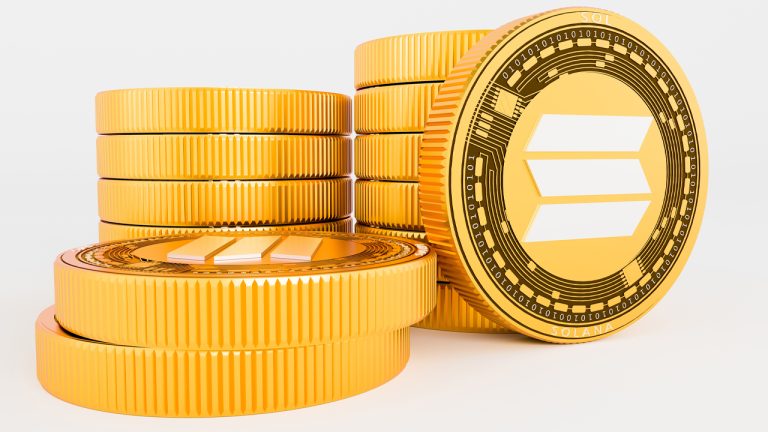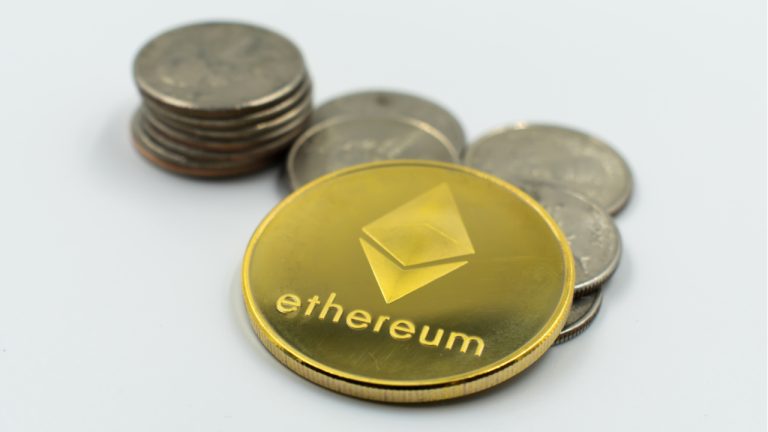
Ethereum gas fees reportedly breached the $200-mark for certain high-priority transactions in the last 24 hours.
A recent spike in transaction fees on Ethereum and Bitcoin appears to have reignited the debate around solutions for scalability and the role of layer 2s.
Over the last 24 hours, cryptocurrency users began sharing screenshots showing double, occasionally triple-digit transaction fees on Ethereum and Bitcoin.
One screenshot showed gas fees were as high as $220 for a high-priority transaction on Ethereum while other screenshots showed figures around the $100 mark.
Bitcoin users meanwhile, reported fees that were around $10 for high-priority transactions. While this is relatively low, the average Bitcoin (BTC) transaction cost has hovered around $1 over the last three months, according to BitInfoCharts. BTC fees haven’t been this high since May.
#Saitama #SaitaRealty
— POWELLY (@MPowelly01) November 9, 2023
To Add to Below Post
This isn't even Height of Bull Run
Already #ETH Gas Fees are Extortionate $175.79
This is why 1st Chance I get my #SaitaRealty #Saitama Will Go on #BNB Chain
2 Live Transactions Now if i Processed Now
One on #ETH Gas Fee is… https://t.co/GYZy6L78Ku pic.twitter.com/JnOzNCK35X
At the time of writing, a transaction from an Ethereum hot wallet comes with a network cost of $45.65 for a $300 transfer on decentralized exchange Uniswap, according to a test transaction conducted by Cointelegraph.

The rise in gas fees have prompted proponents of Solana and other blockchains to flaunt how much cheaper transactions are on those respective chains.
One X (formerly Twitter) user, “Bobby Apelrod” noted that Solana only charges $55-60 per minute for all Solana users, while each “poor Ethereum user” had to pay that much for a single transaction.
Lol $SOL charged only 1.2 Sol ($55-$60) per min in TOTAL fees for the ENTIRE SOYLANA PLANET
— Bobby Apelrod / / nicefeet.sol (@tofushit888) November 9, 2023
while the median gas fee on $ETH spiked to 160+ gwei, charging each poor ethereum user US$60 fees PER transaction
Mental illness imwo pic.twitter.com/WAtxjk1gzH
“Currently, #PulseChain gas fees are 4'000X cheaper than Ethereum and 14'000X cheaper than Bitcoin,” said “KaisaCrypto.”
The price of network fees is dynamic and is a product of demand or how congested the network is. An increase in on-chain activity often occurs in bull markets or when market sentiment is strong, but an added side effect is the impact on lower income users.
“How does this help the unbanked and lower income population,” Lopez iterated in a post which showed a “high priority” Bitcoin transaction fee of $10.50 on Nov. 9.
It now costs $10 to transfer money on Bitcoin.
— Hector Lopez (@hlopez_) November 9, 2023
How does this help the unbanked and lower income population? pic.twitter.com/0OBKCFZu3E
Prior to the fee spike, transaction costs on Ethereum averaged out at $11.35 on Nov. 8, according to BitInfoCharts. A few weeks earlier on Oct. 14 it fell as low as $1.40 — the lowest level recorded in 2023.
Gas fee on Ethereum peaked at $196 on May. 1, 2022, while fees were consistently above $20 between August 2021 and February 2022.

Scale the base layer or rely on L2s?
Bitcoin and Ethereum developers chose to prioritize decentralization and security at the base layer and offload much of its execution environment to layer 2s to make transactions cheaper.
The Lightning Network is used to scale Bitcoin, while Ethereum has a handful of layer 2s specifically focused on making Ethereum faster and cheaper, such as Arbitrum, Optimism and Polygon.
Transactions are often less than $1 on these layer 2 networks but not everyone agrees it is the right way to tackle scalability.
Related: Ethereum gas fees cool down after May memecoin frenzy
Justin Bons, founder of cryptocurrency investment firm Cyber Capital believes the base layer should be the only transaction environment.
L2s are a terrible replacement for L1 scaling
— Justin Bons (@Justin_Bons) October 28, 2023
In fact, L2s do not scale the L1 at all; if anything L2s compete with the L1 over fees
Weakening the security & economics of the L1
All while delivering worse UX, lower security & fragmenting liquidity
"L2 scaling" is parasitical!
He advocates for monolithic blockchain architectures in which consensus, data availability and the transaction execution is all handled on the base layer. Solana is an example of this.
Bitcoin and Ethereum on the other hand, are modular blockchains because they offload some transactions to a second layer.
All major scaling methods can be divided into a spectrum with five categories:
— Justin Bons (@Justin_Bons) May 19, 2023
1. Modular side chains: ATOM, DOT, AVAX
2. Modular layer two: BTC, ETH, ADA
3. Monolithic enshrined roll-ups: XTZ
4. Monolithic execution sharding: EGLD, NEAR, TON
5. Monolithic single chain: SOL, BSV
However, critics have pointed to several outages on Solana due to network congestion, arguing that a modular blockchain design is a better approach to solve scalability.





